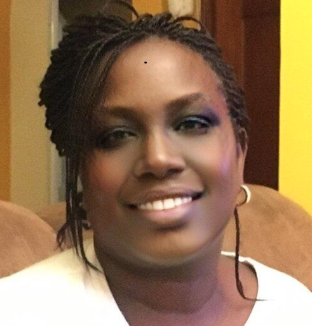
I joined RefugePoint as a social worker three years ago, but I could easily be mistaken for one of the longest-serving employees due to my talkative personality. My first week on the job I was in awe that all of the social workers knew their clients by name. At the time, I found many of the client names too long and difficult to pronounce. I wondered if I would ever be able to recall my client’s names, let alone pronounce them. I was assigned to work with 50 households.
My first field visits were to Kawangware and Rongai, two of the areas in Nairobi where refugees reside. Those first visits were eye-opening. I previously had no idea about the deplorable conditions in which many refugees live. The first household we assessed was a family of 12, all of whom were residing in one room. I had never imagined that twelve people could fit into such a small space. I shed many tears after conducting my first client interview, during which the client recounted the torture, gang rape, murder, and loss of property that they had experienced. Most of the flight histories that I collect for each new client recount the same types of horrors. My tears have dried, but my heart aches from the many traumatic experiences that refugees endure.
The impact of social work is not tangible and in most cases does not receive the same accolades that other programs receive – and this can sometimes be disheartening.
My journey with clients has been a fulfilling one, though the imprisonment of a young promising refugee boy and the death of one of my clients from illness were dark moments.
My memorable moments have been many:
- The joy of a top-performing student who had dropped out of school due to lack of school fees returning to school after two years. He is now at the top of his class.
- A mother of five fitted with a foot prosthesis actively engaging in taking care of her family. She is now able to experience so much joy while dropping off lunch to her children in school.
- The smile and energy of a five-year-old boy playing with his friends after pediatric surgery.
- The growing self-esteem of a single mother of six after attaining control of her bladder due to a psychosomatic poor bladder caused by the trauma experienced from gang rape.
- The title of “the first refugee medical student” for a young man who nearly lost hope of ever going to medical school.
- The hope on the faces of clients leaving for resettlement.
- Listening to clients expressing their gratitude for the kindness, respect, and service received from RefugePoint
- The opening up of opportunities for youth to join vocational training after years of being left out from active engagement.
- The most dependent three clients unpredictably becoming the most successful clients in business.